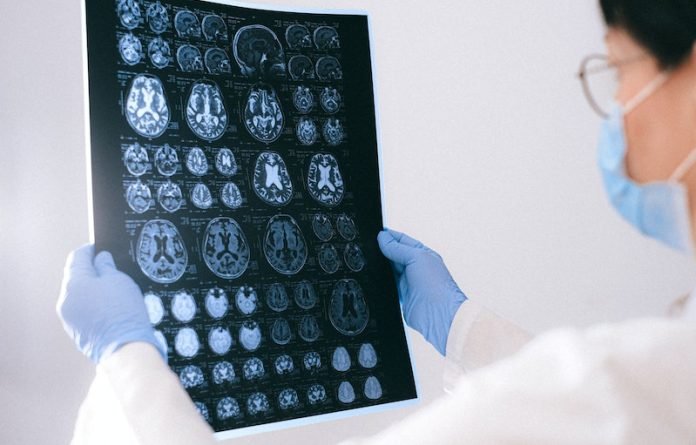
Scientists have discovered that COVID-19, the disease caused by the coronavirus, can have long-term effects on the brain, even after patients have recovered.
According to a recent study from the Indian Institute of Technology, patients who had recovered from COVID-19 still showed brain changes up to six months after they had contracted the disease.
Some of the neurological symptoms associated with long-term COVID-19 include difficulty thinking or concentrating, headaches, sleep problems, lightheadedness, a pins-and-needles sensation, changes in smell or taste, and depression or anxiety.
However, even patients who were asymptomatic during their infection can experience changes to their heart, lungs, and other organs.
The study used a type of imaging called susceptibility-weighted imaging to analyze the effects of COVID-19 on the brain.
This type of imaging can detect and monitor many neurologic conditions, including microbleeds, vascular malformations, brain tumors, and stroke.
Researchers analyzed the imaging data of 46 COVID-recovered patients and 30 healthy controls, all of whom had undergone imaging within six months of recovery.
They found that patients who had recovered from COVID-19 had significantly higher susceptibility values in the frontal lobe and brain stem compared to healthy controls.
The clusters obtained in the frontal lobe primarily show differences in the white matter.
The researchers found that portions of the left orbital-inferior frontal gyrus (a key region for language comprehension and production) and right orbital-inferior frontal gyrus (linked to various cognitive functions including attention, motor inhibition, and imagery, as well as social cognitive processes) and the adjacent white matter areas made up the frontal lobe clusters.
They also found a big difference in the right ventral diencephalon region of the brain stem, which is linked to many crucial bodily functions.
The most commonly reported symptoms among patients with long COVID were fatigue, trouble sleeping, lack of attention, and memory issues.
The researchers are conducting a longitudinal study to determine whether these brain abnormalities persist over a longer time frame.
As more people become infected and recover from COVID-19, it’s important to continue studying the lasting consequences of the disease.
While vaccines have been developed to help prevent COVID-19, researchers are still learning about the long-term effects that the disease can have on the body, including the brain.
How to prevent long COVID
At this time, there is no definitive way to prevent long COVID, as there is still much that researchers and doctors do not know about the condition.
However, there are steps that individuals can take to reduce their risk of contracting COVID-19 and potentially developing long COVID:
Get vaccinated: One of the best ways to protect yourself from COVID-19 is to get vaccinated. Vaccines have been shown to be highly effective at preventing severe illness, hospitalization, and death from COVID-19.
While breakthrough infections can still occur, they are typically milder and less likely to result in long-term symptoms.
Practice good hygiene: Washing your hands frequently, avoiding touching your face, and wearing a mask in crowded public spaces can help reduce your risk of contracting COVID-19.
Stay home when sick: If you are feeling unwell, particularly if you are experiencing symptoms of COVID-19, stay home and seek medical advice.
Follow public health guidelines: Follow the guidelines set by your local health authorities, such as social distancing measures and restrictions on public gatherings, to reduce your risk of contracting COVID-19.
Take care of your overall health: Maintaining a healthy lifestyle, including getting regular exercise, eating a balanced diet, and managing stress, can help support your immune system and reduce your risk of developing long COVID if you do contract COVID-19.
While these steps can help reduce your risk of contracting COVID-19 and potentially developing long COVID, it’s important to remember that the situation is still evolving and researchers are still learning about the virus and its long-term effects.
It’s important to stay informed and follow the latest guidance from public health authorities.
If you care about long Covid, please read studies about four major types of long COVID, and scientists find new way to tackle long COVID.
For more information about health, please see recent studies about the best time to take high blood pressure drugs, and results showing this nasal spray lowers COVID-19 infection by over half.
The study was conducted by Sapna S. Mishra et al and published at the annual meeting of the Radiological Society of North America.
Copyright © 2023 Knowridge Science Report. All rights reserved.



